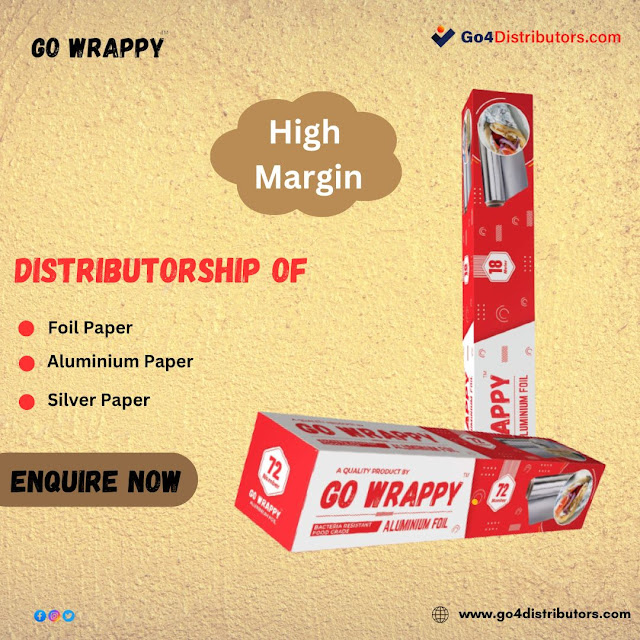What Safety Considerations Should You Bear in Mind When Using Foil Paper in the Kitchen?
Foil paper is a practical and important culinary tool. Whether wrapping up leftovers, roasting veggies, or grilling salmon, foil paper is a popular choice for many home cooks. While foil paper is incredibly helpful, it's important to remember that, like other culinary ingredients, it should be used with caution. You can expand your company by going to Go4Distributors.com if you are an Aluminum Paper Manufactures among those who are reading this article. In this post, we'll go over a number of safety hazards to be on the lookout for when utilizing foil paper in the kitchen.
Keeping Distance from Open Flames:
The flammability of foil paper is one of the main safety issues. When exposed to direct flames, such as those from a grill or an open stovetop burner, foil paper can catch fire. Always use foil paper in a way that reduces contact with open flames to avoid mishaps. For instance, when grilling, place objects in foil on the grill grates rather than directly over the flames.
Proper Techniques for Wrapping:
When using foil paper to wrap food, make sure the container is well closed. Juices and steam can escape from loose or unprotected edges, sometimes resulting in burns or harming your oven or grill. When folding and sealing the foil, exercise caution to ensure a secure closure.
Avoid Sharp Edges:
Although foil paper rolls frequently have serrated edges for simple tearing, these edges can be very sharp. To prevent unintentional cuts or injuries, use caution when peeling off a piece of foil. To stop sharp edges from being exposed, use a kitchen foil dispenser or a box with a safety feature.
Allergies to Aluminum:
Aluminum sensitivity or allergies might occur in some people. Even if it's unlikely, it's important to be prepared for this scenario. Consider using another type of cookware, such as parchment paper, if you or anybody you are cooking for develops skin rashes, itching, or a metallic taste in their mouth after using aluminum foil.
Skip the Acidic Foods:
Foods that contain a lot of acid, such tomatoes, citrus fruits, or marinades made with vinegar, might cause foil paper to react. By doing this, aluminum may enter your meal and impart a metallic flavor. When cooking acidic dishes, consider using alternate materials instead, such as parchment paper.
Security Storage:
Also essential is securely storing foil paper. Away from the sun's rays and heat sources, keep it in a cool, dry location. By doing this, the foil is kept intact and is not susceptible to harm. Additionally, to prevent any unintentional consumption, store foil paper out of the reach of youngsters.
Disposal and Recycling:
In many places, aluminum foil can be recycled, but cleaning and rinsing it first is very necessary. This lessens the chance of contamination in recycling streams. For detailed directions on recycling foil, make sure to review your community's recycling regulations.
Conclusion:
Although foil paper is a great kitchen tool, it must always be handled carefully. By remembering these safety steps, you can benefit from the convenience of foil paper in your cooking while reducing the risk of accidents or health problems. Always remember that a cheerful kitchen is a safe kitchen. Visit Go4Distributors.com (a distributors platform) for such crucial information and if you're seeking for dealers in Aluminum Foil Paper.



Comments
Post a Comment